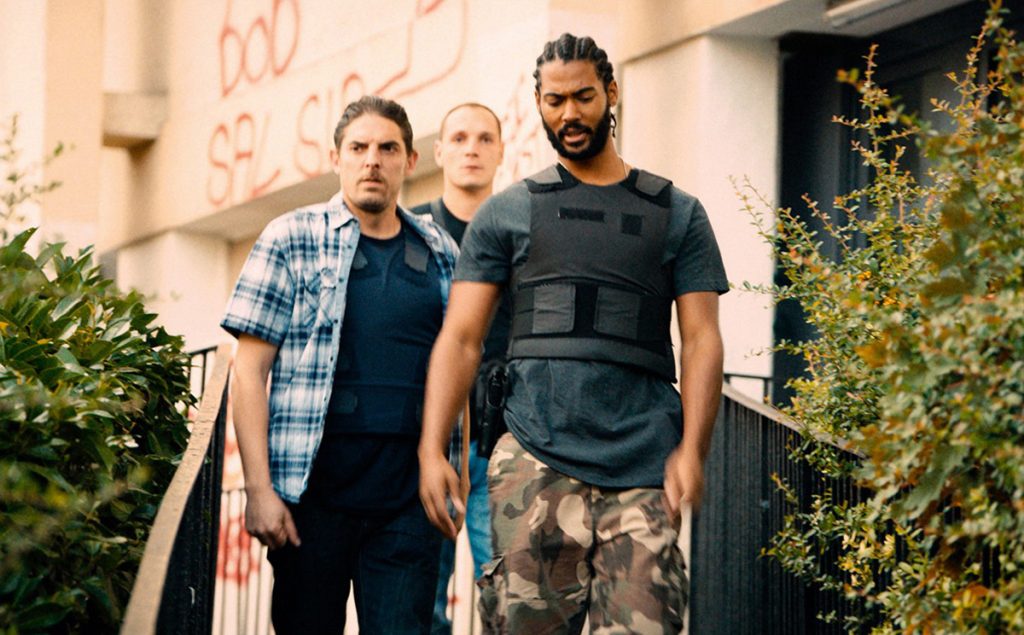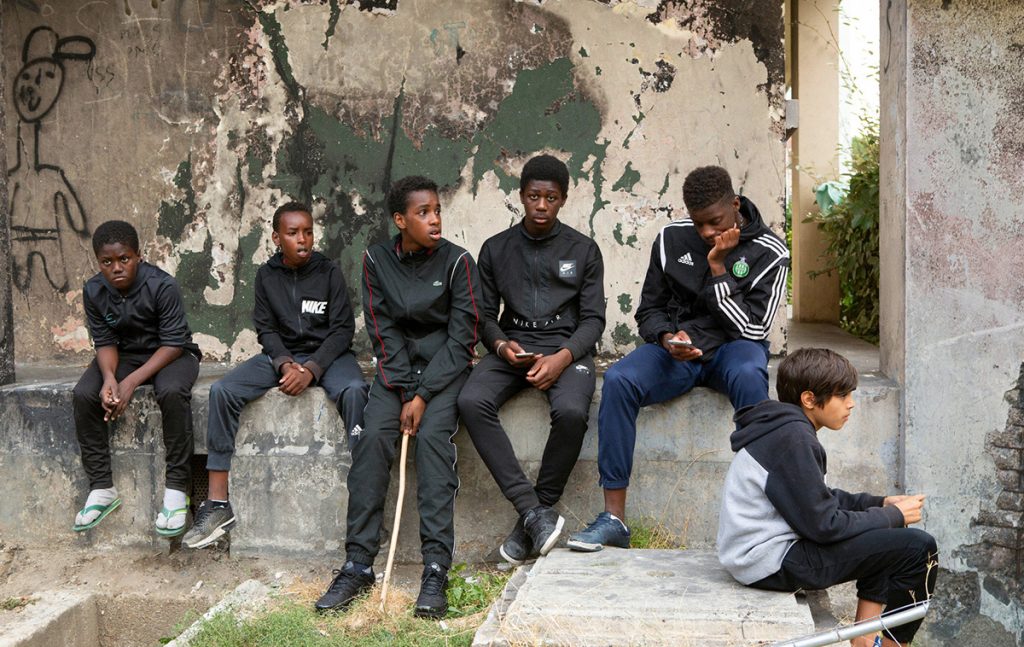Available on home entertainment on the 30th November, Les Misérables is the Oscar-nominated film written and directed by Ladj Ly.
My first knowledge of Les Misérables (aside from the infamous musical) was that it was the film chosen by France for the International Feature Film Oscar category in the most recent awards season. Normally this wouldn‘t register for me, except this was in the same year that Portrait of a Lady on Fire was released and if you’ve read anything from me this year on here or over on Twitter, you’ll know I adored Portrait of a Lady on Fire.
So how on Earth could any other film be chosen to portray all that French cinema has to offer? Well, Les Misérables could not be more different from Portrait, but it does shine a light on exactly what well-made films can and should be – thought-provoking snapshots in time. Windows into other worlds that make us question our own morality.

Inspired by the 2005 Paris riots, and Ladj Ly’s short film of the same name, we follow Stéphane (Damien Bonnard) on his first day with Anti-Crime Squad in Montfermeil, in the suburbs of Paris, France, where Victor Hugo set his famed novel “Les Misérables”. He quickly discovers tensions running high between local gangs and his new colleagues Chris (Alexis Manenti) and Gwada (Djebril Zonga) when they are all caught up in an incident involving local teenagers.
I found the first 40 minutes of the film almost overpowering as Ly’s writing and direction fully immerse us in the commune with all of its class and religious issues. Stéphane works as the perfect audience proxy, wide-eyed, stunned silence as he observes the goings-on between his new colleagues and the community they are serving. When the inciting incident happens, the film is suddenly addictively watchable. Whilst the build is slow, it’s a necessary build to make the power of this moment feel earned and as important as it needs to be.

Ly has created an aggressive and angry feature film that feels depressingly realistic – and it should be. Inspired by a real incident Ly saw and filmed in his original short, its garnered attention from President of France Emmanuel Macron who is said to have been upset by the accuracy of the film. It provides a well-balanced examination of the community – no-one is free from fault, but what happens when those in positions of power are busy protecting their own best interests, rather than those who they serve?
It’s been a year for tense and powerful film with scenes from The Assistant and Uncut Gems coming to mind, and Les Misérables adds to this with an overwhelmingly powerful third act. The closing of the film is incredibly unsatisfying in a perfect way and leaves us with a powerful message.
Films like this remind us that art doesn’t always have to be pretty, or finished, or enjoyable. Art can, and in some always should be, a form of protest, a form of documentation and a window into areas of life that need more light. Powerful and compelling, it’s a story that can’t be ignored.
Les Misérables – released on DVD and digital on 30th November

 7.6
7.6

Photos
See all photos >>

Ex film teacher and frequent couch potato. I try and see at least one new release a week, but I’ve somehow got to 30 without having seen The Godfather?














